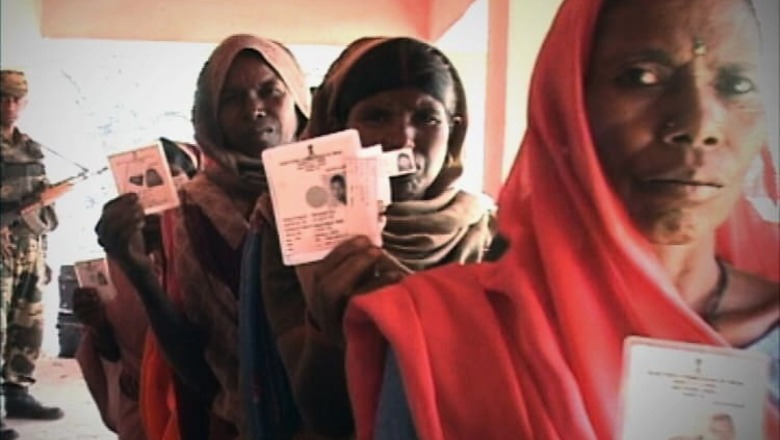
views
During the last few months a range of questions have been raised by a host of people representing a wide spectrum of opinions, about the inclusive nature of our society. While 'unity' needs to be the overarching goal, our multi-track diversity is, beyond a shadow of doubt, our greatest strength. The debate in the society in recent times has once again brought this issue to the centre-stage. Let’s examine different strands of this debate..the latest RSS statement on the alleged changing religious majority patterns in border districts; the shrill voices of divisiveness that have reverberated through the Bihar assembly election campaign – the personal attacks by and on leaders of all political colours, the rhetoric and counter-rhetoric on sensitive and emotional issues; the 'we' vs 'they' - the sad divisiveness on religious, caste, class and regional lines being constantly and often forcibly kept alive by a focus on social exclusivity rather than social inclusiveness. In this atmosphere of a cold and calculated social 'compartmentalization' can 'we' and 'they' ever hope to add up to 'Us'?
The saddest and most distressing element of the ongoing debate is that often the relative merits of different perspectives are placed on the 'back-burner' and one rushes to 'label' a position as either being for or against a political dispensation and boxing the same in different ideological slots. For example, the act of protest in returning awards is either dubbed as 'selective amnesia' or an 'act to embarrass those in power'. Every response is slotted as either 'black' or 'white' not releasing that at the end of the day there are always 'multiple shades of grey'. The latest fad is to dub this entire divisiveness as merely a by-product of 'politics', displaying a shallow understanding of what constitutes politics. Politics at the end of the day, mirrors the socio-economic reality it operates within. Thus, to place the blame for the rising intolerance and impatience with diversity solely on the political process would be a clear reflection of a very limited appreciation of what all defines and determines politics.
The 'blame game' one notices today to attempt to explain the divisive tendencies spreading in society, often 'masks' reality and focuses more attention on apportioning blame for the developments rather than seeking meaningful solutions to arresting the alarming trend. A few concrete steps merit attention.
Fringe elements that seek to spread an atmosphere of distrust, hate and suspicion cannot and should not be classified on the basis of their ideological colour, political bias or religious affiliation. They all need to be placed in the same 'undesirable basket' of those that need to be emphatically challenged and collectively exposed. The moment one seeks to even mildly justify/defend them, one is providing them with a 'mask' to justify their presence and 'gloss' over their actions.
Secondly, in building an inclusive society which respects and celebrates pluralism, one wrong cannot justify or another wrong. Nor can one wrong be condoned to undo the consequences of a past wrong. This has unfortunately become a favourite pastime together. An act that needs to be squarely condemned is often condoned on the ground that no voice was raised when something similar happened (inspired by an alternative political formulation or line of thinking) in the immediate or distant past. One cannot undo a past wrong by having the society of today to suffer the consequences of something equally reprehensible.
Thirdly, those vested with power and responsibility cannot be seen as adopting a patently partisan or sectarian approach. Be it the government at the central level or the one in the states, both need to be seen as being transparently and openly fair and inclusive in their approach. It in this context, one expects those in power to unequivocally condemn efforts at dividing society and sowing the seed of hatred among social groups and not be selective in their response. The fact that governments and leaders did not speak up as strongly in the past, needs to be condemned. This however, does not provide a justification for silence in the present context. Trying to create a balance sheet of the errors and excesses of the past to gloss over and sometimes even justify the silence on the part of those in power only further exacerbates divisions and social divides.
Finally, the strength of Indian society has been its social pluralism. The social and religious diversity present in India does not merely need to be tolerated or even accommodated but must be celebrated. Developments of the recent past are raising questions of whether we as a society have the capacity to accommodate diversity leave alone celebrate it! Putting an end to the blame game and refusing to justify acts in order to correct perceived errors of the past would be the first two baby steps towards in the direction of transforming 'we' and 'they' into US.
(Author Dr. Sandeep Shastri is a political analyst who is currently the Pro Vice Chancellor of Jain University at Bengaluru and an Election Analyst/Political Commentator with CNN-IBN. Views are personal)




















Comments
0 comment